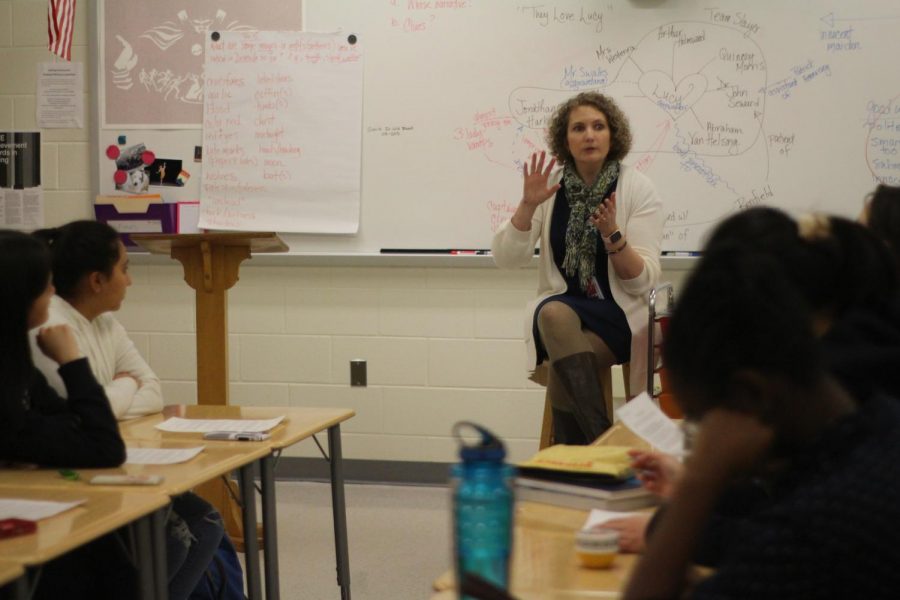Writing Alone or Writing in Chorus?
NCTE’s annual writing competition centers around the theme ‘human chorus’ and selects high school juniors across the nation
English teacher Dr. Michelle Boswell discusses the NCTE competition with students during the interest session.
January 13, 2019
Every year, the National Council of Teachers of English (NCTE) holds a national writing competition for high school juniors across the U.S. to recognize and reward students who produce exceptional writing based on the year’s theme.
“This year’s theme is Human Chorus. How do you recognize you are a part of a bigger human chorus? How do you recognize that you are a part of a bigger group of writers and poets? How do you recognize that you are a part of something bigger than yourself, as opposed to an individualistic spirit?” English teacher Dr. Michelle Lang Boswell said.
The process for submitting a writing piece to NCTE starts at the school level, where a panel of English teachers judge the writing pieces and nominate the best writers to move onto the national NCTE competition.
“You will submit your work, and I will give it to a panel of English teacher judges and then they will say who the top writers are, and based on a point rubric, those writers will be nominated,” Boswell said. “Then, it goes to NCTE and they will either award you a Certificate of Recognition or a Certificate of Nomination.”
The Certificate of Nomination recognize those students who were nominated by their school for submission into NCTE, and the Certificate of Recognition recognizes those students who are deemed to have superior writing.
“The number of nominations is based on school population. Last year, we sent in three, and this year, it will be four,” Boswell said.
For submission into the competition, students submit two original works of writing: one “Best” (a sample of writing the student considers to be their best) in any genre of writing, and one “Themed”, which acknowledges the year’s theme. The rules for submission are numerous and meticulous.
“Everything should have 1-inch margins, with the exception of poetry, which can have higher or lower margins as needed. The name goes on the upper right-hand corner, with either Best or Themed in the upper left-hand corner,” Boswell said. “The judges will read the papers in blind, meaning that your name will not be associated with it, allowing for objectivity assessment of your work.”
Yet, the competition seeks not only strong writers, but those who think creatively, and express themselves and their thoughts in novel ways, that capture the attention of the reader.
“Overall, they would like to see strong writers, who have really good control over their writing, but it’s also about the thinking that is demonstrated,” Boswell said. “It is not a superficial treatment of the topic you write about, but that there is interesting characterization, or really cool use of language, voice, mood, tone, and so on.”






